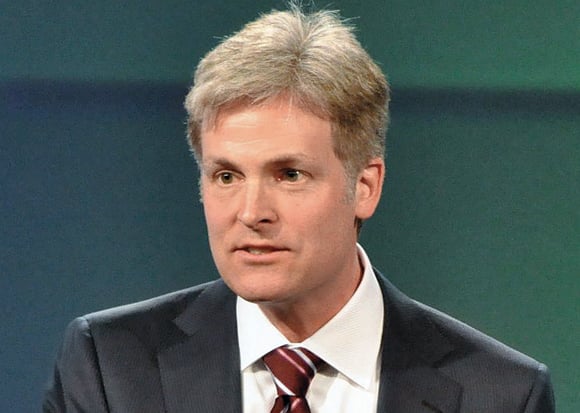As the Securities and Exchange Commission wrestles with the task of defining a standard of care for anyone who gives investment advice to retail clients, executives at TD Ameritrade Inc. aren't having a difficult time with the issue.
As the Securities and Exchange Commission wrestles with the task of defining a standard of care for anyone who gives investment advice to retail clients, executives at TD Ameritrade Inc. aren't having a difficult time with the issue.
“I don't think it's OK to have the same client under two different business models,” said Tom Bradley, president of TD Ameritrade Institutional. “That's wearing two hats. You're either a fiduciary or not. Pick one.”
Anyone giving investment advice “should register … as an adviser,” Mr. Bradley said in an interview yesterday at a meeting the company's affiliated advisers in San Francisco.
Brokers who sell proprietary products and are compensated by commissions pose an "inherent conflict of interest," he added.
“[As a broker], I may have a smaller group of funds I can recommend, or I might get higher pay on some. That doesn't seem like the same playing field" as an investment adviser, Mr. Bradley said.
Some hybrid advisers, however, argue that certain products, such as bonds, work better for clients when purchased in a commission account.
Mr. Bradley doesn't buy that approach. "Just charge a lower [advisory] fee overall" on the entire amount, he said.
Most hybrid advisers at TD Ameritrade are "weaning themselves off commissions," Mr. Bradley added.
The company holds assets in custody for about 4,000 advisers who have $120 billion under management.
TD Ameritrade's discount-broker business likely would not be affected by the imposition of a uniform fiduciary standard for brokers and advisers, Fred Tomczyk, president and chief executive of TD Ameritrade Holding Corp., said in an interview.
The firm does not give advice to its individual clients except in "very defined circumstances," he said.
As it's been discussed, a fiduciary duty would apply only "when giving personal investment advice," Mr. Tomczyk said. "We can live with that."
A fiduciary standard of care is "not a foregone conclusion," he added, noting that the politically powerful brokerage industry has proposed a nationwide standard of care that is yet to be defined.







